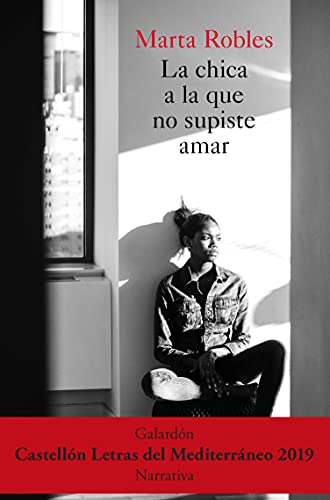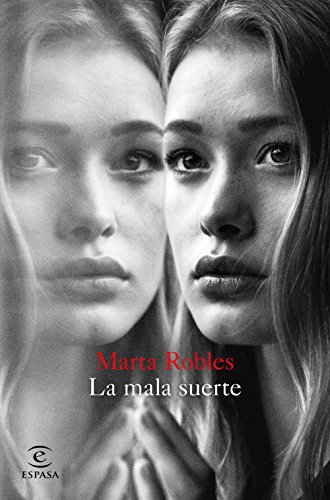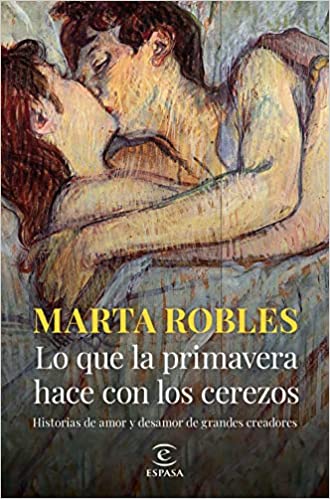Excusing myself in an easy duality, dichotomy or whatever you want to call it, I have to say that not infrequently I confused Theresa Old with Marta robles. His appearances on television multiplied during a good season and one was confused. And since both must be around the same age, the matter was complicated for me.
To make matters worse, both journalists also indulge in an increasingly fruitful literature. But once we get into the matter, the differences in plot, staging and style are triggered towards very different ends.
As today it is time to talk about Marta Robles, we could point out in her work a greater ambivalence between fiction and non-fiction, an interest in probing intrahistories on both sides of the mirror that links our world with its different possibilities in unsuspected reflections. Because of course, spending a few decades lost among books arouses more interest and bears fruit in all kinds of proposals between already emblematic detectives or real characters squeezed in their juiciest aspects. Let's look at some examples...
Top 3 recommended books by Marta Robles
The girl you didn't know how to love
With a title that slightly evokes that famous series of the Nordic noir genre whose name I don't want to remember, we discover a fascinating story with a detective Roures already consolidated in the general imagination with his flaws, his faults and sins and his determination not to leave any unsolved case...
Detective Tony Roures, cynical and sentimental, receives a visit at dawn from an old friend, Alberto Llorens, a photographer whom he believed to be happily married to a wealthy businesswoman from Castellón. The sad reality, as he tells her, is that he has marital problems and has become a regular at the most famous hostess club in all of Spanish Levante.
There he met Blessing, a young Nigerian woman tied to a trafficking organization due to travel debt and a voodoo ritual. After undergoing a botched operation for breast cancer, she becomes "spoiled merchandise" and is murdered. It is then that Llorens receives threats and, scared, looks for Roures. This begins a dangerous investigation that will reveal a criminal plot of trafficking in women of unusual cruelty.
Bad luck
The second parts can be better than the first when the author knows how to take advantage of that inertia, those loose ends, the open endings in any of its aspects. This is how this soap opera appears with everything to discover...
The charismatic detective Roures, a former war correspondent and a man marked by a past that always returns, returns to confront in this second noir novel by Marta Robles the strange disappearance of a young woman in Mallorca, for whom, after two years of intense searches, , there doesn't seem to be any clues.
Beyond the chaotic situation of the family of the disappeared woman, aggravated by the distressing circumstances, the detective will come across a network of complex characters, whose different hidden turbidities will lead him, obsessively, to two unavoidable questions: what What are people willing to do to become fathers or mothers? Are fatherhood and motherhood acts of generosity or selfishness?
Painful insecurities in adolescence, mistreatment and abuse that are not considered as such, family secrets, deceit that determine the lives of the deceived..., everything fits in Bad luck, an exciting story, full of emotions, where the enemy is always there. very close…
What spring does to cherry trees
After rummaging in the back room of our history to show us how the "carnal passions" of kings, queens, and the powerful determined the course of events ("great decisions are made neither in royal audiences nor in offices, but rather in the short distances »), Marta Robles explores in this new essay the relationship between emotions and artistic creation.
With the agile and direct style that characterizes her, the author immerses us in the lives of creators from very different disciplines ―musicians, writers, poets, painters, sculptors, filmmakers, photographers...―, many of them tumultuous and dotted with amazing episodes so intense and destructive that accompany creative personalities.
Creation? Destruction? Love? This book talks about it, loves and heartbreaks, passions and sex, abandonment, losses and pain, and how this alchemical combination, as magical as it is difficult to explain -and, sometimes, to live-, acts in the creative drive of geniuses. That effect so prodigiously condensed in Neruda's verse that gives the book its title: "what spring does with cherry trees."



